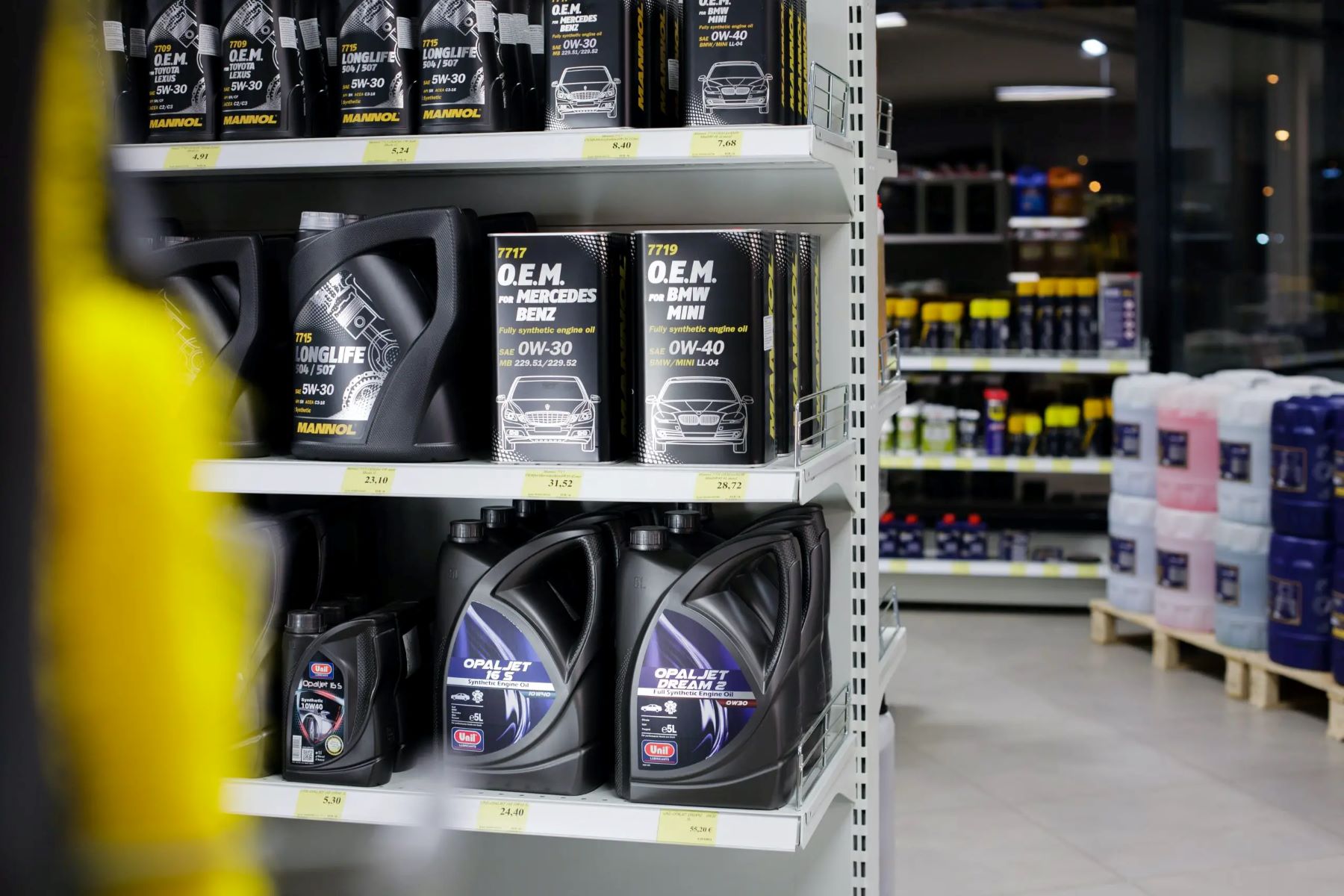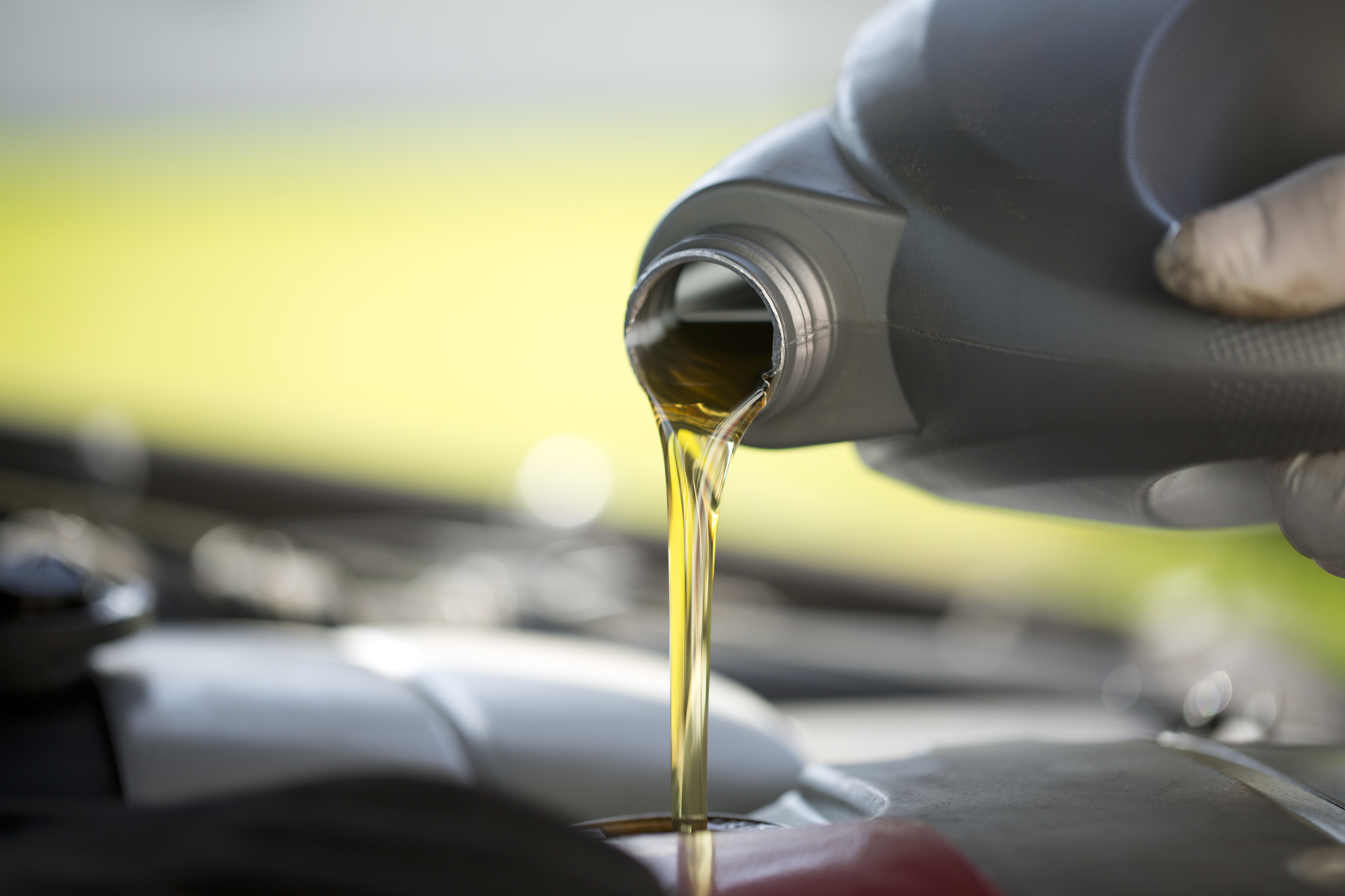Home>Automotive>Oops! I Accidentally Used The Wrong Oil! What Happens When You Put 5W 30 Instead Of 5W20?


Automotive
Oops! I Accidentally Used The Wrong Oil! What Happens When You Put 5W 30 Instead Of 5W20?
Published: January 20, 2024
Find out the consequences of using 5W-30 instead of 5W-20 oil in your vehicle. Learn about the potential effects and how to address the issue. Expert advice for automotive enthusiasts.
(Many of the links in this article redirect to a specific reviewed product. Your purchase of these products through affiliate links helps to generate commission for Regretless.com, at no extra cost. Learn more)
Table of Contents
Introduction
Choosing the right motor oil for your vehicle is crucial for maintaining its optimal performance and longevity. However, there are instances when mistakes happen, such as accidentally using the wrong oil viscosity. One common error is using 5W-30 instead of the recommended 5W-20 oil. While it may seem like a minor oversight, the consequences of using the incorrect oil viscosity can have a significant impact on your vehicle's engine.
In this article, we will delve into the implications of using 5W-30 instead of 5W-20 motor oil, shedding light on the potential effects it can have on your engine's performance and overall functionality. Understanding the differences in oil viscosity and the potential repercussions of using the wrong type of oil is essential for every vehicle owner. So, let's explore the intricacies of motor oil viscosity and the specific consequences of using 5W-30 instead of 5W-20 in your car's engine.
Understanding Oil Viscosity
Oil viscosity refers to the thickness or resistance to flow of a liquid, such as motor oil. It is denoted by a numerical code, such as 5W-20 or 5W-30, where the first number represents the oil's viscosity in cold temperatures (W stands for winter), and the second number indicates its viscosity at operating temperatures. Understanding these viscosity ratings is crucial for selecting the right oil for your vehicle.
In the case of 5W-20 and 5W-30 oils, the numbers denote their flow characteristics at different temperatures. The "5W" part signifies the oil's flow at low temperatures, with the lower number indicating better cold-start performance. The second number, either 20 or 30, represents the oil's viscosity at high temperatures, with higher numbers indicating thicker oil.
5W-20 oil is thinner than 5W-30 oil at operating temperatures, offering less resistance to flow. This difference is significant because modern engines are engineered to operate optimally with specific oil viscosities. Using the manufacturer-recommended 5W-20 oil ensures that the engine components receive proper lubrication and protection, contributing to efficient performance and longevity.
When choosing the right oil viscosity, it's essential to consider the manufacturer's recommendations, as they are based on extensive testing and engineering specifications. Using the correct oil viscosity not only ensures proper lubrication but also aids in maintaining fuel efficiency and reducing wear and tear on engine components.
Understanding oil viscosity is crucial for vehicle owners, as it directly impacts engine performance and longevity. Now that we have a clear understanding of oil viscosity and its significance, let's delve into the potential effects of using 5W-30 instead of the recommended 5W-20 oil in your vehicle's engine.
Effects of Using 5W-30 Instead of 5W-20
Using 5W-30 motor oil instead of the manufacturer-recommended 5W-20 can lead to several significant effects on your vehicle's engine and overall performance. While it may seem like a minor deviation, the differences in viscosity between these two types of oil can have far-reaching consequences. Let's explore the potential effects of using 5W-30 instead of 5W-20 in your vehicle.
1. Reduced Fuel Efficiency
The use of 5W-30 oil, which is thicker than 5W-20, can result in increased friction within the engine. This heightened friction leads to greater resistance in the engine's moving parts, ultimately impacting fuel efficiency. The thicker oil film created by 5W-30 may require more energy to circulate within the engine, causing a slight reduction in fuel economy compared to using the recommended 5W-20 oil.
2. Impaired Cold-Start Performance
One of the primary purposes of the "W" (winter) rating in motor oil viscosity is to indicate the oil's flow characteristics in cold temperatures. Using 5W-30 instead of 5W-20 can lead to compromised cold-start performance, especially in colder climates. The thicker viscosity of 5W-30 may result in delayed oil circulation during cold starts, potentially causing increased wear on engine components due to inadequate lubrication at startup.
3. Potential Lubrication Issues
The thinner consistency of 5W-20 oil allows it to flow more easily and reach engine components faster than 5W-30 oil. Using 5W-30 may hinder the oil's ability to reach critical engine parts promptly, potentially leading to inadequate lubrication, especially during initial startup and high-speed operation. This can result in increased friction and wear on vital engine components, potentially impacting the engine's longevity and performance over time.
4. Engine Wear and Tear
The use of 5W-30 instead of the recommended 5W-20 oil can contribute to accelerated wear and tear on engine components. The increased friction and potential lubrication issues associated with using a thicker oil can lead to heightened stress on the engine's moving parts, including the pistons, camshaft, and bearings. Over time, this can result in premature wear and reduced overall engine lifespan.
5. Warranty Implications
Using the incorrect oil viscosity, such as 5W-30 instead of 5W-20, may also have implications for your vehicle's warranty coverage. Many vehicle manufacturers specify the use of specific oil viscosities to maintain warranty protection. Deviating from these recommendations could potentially void certain aspects of the vehicle's warranty, particularly if engine damage or related issues arise as a result of using the wrong oil viscosity.
In essence, the effects of using 5W-30 instead of 5W-20 oil can encompass reduced fuel efficiency, compromised cold-start performance, potential lubrication issues, increased engine wear and tear, and warranty implications. Understanding these potential effects underscores the importance of adhering to the manufacturer's recommended oil viscosity for optimal engine performance and longevity.
Potential Engine Issues
Using 5W-30 motor oil instead of the specified 5W-20 can give rise to a range of potential issues that directly impact the engine's performance and longevity. These issues stem from the fundamental differences in viscosity between the two types of oil and can manifest in various ways, ultimately affecting the overall functionality of the engine.
Increased Friction and Wear
The use of 5W-30 oil, which is thicker than the recommended 5W-20, can lead to heightened friction within the engine. This increased friction places additional stress on crucial engine components, such as the pistons, camshaft, and bearings, potentially accelerating wear and tear. The thicker oil film created by 5W-30 may result in greater resistance in the engine's moving parts, leading to heightened friction and increased mechanical strain, ultimately impacting the engine's longevity.
Potential Oil Circulation Issues
The viscosity disparity between 5W-30 and 5W-20 oils can also give rise to potential oil circulation issues within the engine. The thicker consistency of 5W-30 oil may hinder its ability to flow efficiently, especially during cold starts and high-speed operation. This can lead to delayed oil circulation, potentially causing inadequate lubrication to critical engine parts. Inadequate lubrication can result in increased friction and wear on vital engine components, ultimately impacting the engine's overall performance and durability.
Compromised Engine Performance
Using 5W-30 instead of the manufacturer-recommended 5W-20 can compromise the overall performance of the engine. The thicker viscosity of 5W-30 may impede the engine's ability to operate optimally, potentially leading to reduced power output and efficiency. Additionally, the compromised lubrication properties of 5W-30 may contribute to increased wear on engine components, affecting the engine's ability to function at its peak performance levels over time.
Potential Long-Term Damage
The use of 5W-30 oil in place of 5W-20 can have long-term implications for the engine's health. The increased friction, potential lubrication issues, and compromised performance associated with using the incorrect oil viscosity can contribute to cumulative damage to engine components. Over time, this can lead to premature wear and reduced overall lifespan of the engine, necessitating costly repairs or even premature engine replacement.
Read more: You Won’t Believe What Happens When You Drive Your Car With Only 5% Engine Oil Life Left!
Warranty Implications
Using the wrong oil viscosity, such as 5W-30 instead of 5W-20, can also have implications for the vehicle's warranty coverage. Many vehicle manufacturers specify particular oil viscosities to maintain warranty protection. Deviating from these recommendations could potentially void certain aspects of the vehicle's warranty, particularly if engine damage or related issues arise as a result of using the wrong oil viscosity.
In summary, the potential engine issues stemming from using 5W-30 instead of 5W-20 oil encompass increased friction and wear, potential oil circulation issues, compromised engine performance, potential long-term damage, and warranty implications. Understanding these potential issues underscores the critical importance of adhering to the manufacturer's recommended oil viscosity for optimal engine performance and longevity.
Conclusion
In conclusion, the significance of using the correct oil viscosity, as exemplified by the choice between 5W-20 and 5W-30 motor oils, cannot be overstated. The implications of inadvertently using 5W-30 instead of the manufacturer-recommended 5W-20 extend beyond mere oversight, encompassing potential repercussions that directly impact the engine's performance, longevity, and overall functionality.
Understanding the nuanced differences in oil viscosity ratings and their impact on engine operation is paramount for every vehicle owner. The potential effects of using 5W-30 instead of 5W-20 oil, ranging from reduced fuel efficiency and compromised cold-start performance to potential lubrication issues and increased engine wear and tear, underscore the critical importance of adhering to the manufacturer's specifications. These effects serve as a poignant reminder of the intricate relationship between oil viscosity and engine performance, emphasizing the need for precision in oil selection.
Moreover, the potential engine issues resulting from using the incorrect oil viscosity, including increased friction and wear, potential oil circulation issues, compromised engine performance, potential long-term damage, and warranty implications, highlight the far-reaching consequences of this seemingly minor error. These issues underscore the need for vigilance in adhering to the recommended oil viscosity to safeguard the engine's health and preserve its operational efficiency.
Ultimately, the ramifications of using 5W-30 instead of 5W-20 oil serve as a clarion call for meticulousness in adhering to the manufacturer's guidelines, as they are rooted in extensive testing, engineering specifications, and the overarching goal of ensuring optimal engine performance and longevity. By heeding these recommendations and selecting the appropriate oil viscosity, vehicle owners can mitigate the risk of potential engine issues and safeguard their engine's health, thereby contributing to a smoother, more efficient driving experience and prolonged engine lifespan.
In essence, the inadvertent use of 5W-30 instead of 5W-20 oil serves as a compelling reminder of the pivotal role that oil viscosity plays in maintaining engine health and performance. By recognizing the significance of this essential aspect of vehicle maintenance and adhering to the manufacturer's recommendations, vehicle owners can uphold the integrity of their engines and pave the way for a seamless and enduring driving experience.












